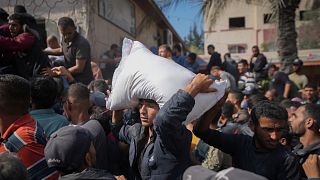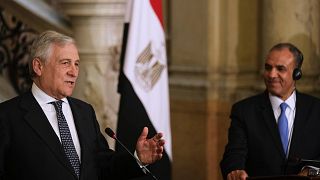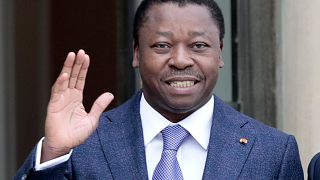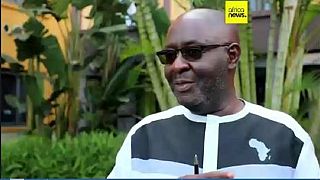Rwanda
Rwandan authorities accused the Burundian leader of making "inflammatory allegations aimed at sowing division among Rwandans", reigniting tensions that have persisted since Burundi closed all crossing points with Rwanda earlier this month.
Relations between Rwanda and Burundi have deteriorated in recent weeks after Burundian President Evariste Ndayishimiye renewed accusations that Rwanda is financing and training the RED-Tabara group rebels.
Burundian authorities consider RED-Tabara a terrorist movement and accuse its members of participating in a failed coup attempt in 2015. The group first emerged in 2011 and has been accused of a series of attacks in Burundi since 2015.
Mr Ndayishimiye spoke about Rwandan youth in "captivity" at an event in the Congolese capital, Kinshasa, on Sunday, saying the region must continue to fight until the Rwandan people put pressure on themselves. government.
He was addressing a youth conference after attending the inauguration of Congolese President Félix Tshisekedi. He apparently spoke in his capacity as the African Union's champion for youth, peace and security.
In a statement released late Monday, Rwandan authorities described Ndayishimiye's remarks as "inflammatory," saying calls for an uprising against the government undermine Rwanda's unity and threaten regional security.
“It is disturbing that someone is trying to undermine this progress by calling on young Rwandans to overthrow their government. But for a leader of a neighbouring country to do so, from a platform in the African Union, is profoundly "irresponsible and constitutes a flagrant violation of the charter of the African Union," the statement said.
Earlier this month, Burundi closed all crossing points with Rwanda and began expelling Rwandan citizens, saying it was reacting to Rwanda's alleged support for RED-Tabara. These rebels attacked the Burundian village of Gatumba, near the Congolese border, last month, killing at least 20 people.
RED-Tabara, which is based in the South Kivu province in eastern Democratic Republic of Congo, took responsibility for the attack in a post on X.
“As long as they have a country that provides them with uniforms, feeds them, protects them, shelters them, maintains them, we will have problems,” Mr. Ndayishimiye said on a national radio program last month, referring to RED-Tabara.
Rwanda has repeatedly denied the allegations.
Both Rwanda and Burundi are members of the East African Community, whose trade ambitions have suffered in recent years from sporadic conflicts that undermine the free movement of people and goods.
Congolese authorities also cite Rwandan aggression in eastern Congo, where government troops are fighting to dislodge violent M23 rebels who control part of the territory. Rwanda denies having authority over the M23.












Go to video
South Sudan to send delegation to the U.S. in a effort to appease tensions
Go to video
France expels 12 Algerian officials amid diplomatic tensions
Go to video
South Africa appoints Mcebisi Jonas as special US envoy in bid to ease tensions
Go to video
South Africa appoints a special US envoy after its ambassador was expelled
Go to video
United Nations marks anniversary of genocide in Rwanda
01:04
Algeria suspends flights to Mali over airspace violations